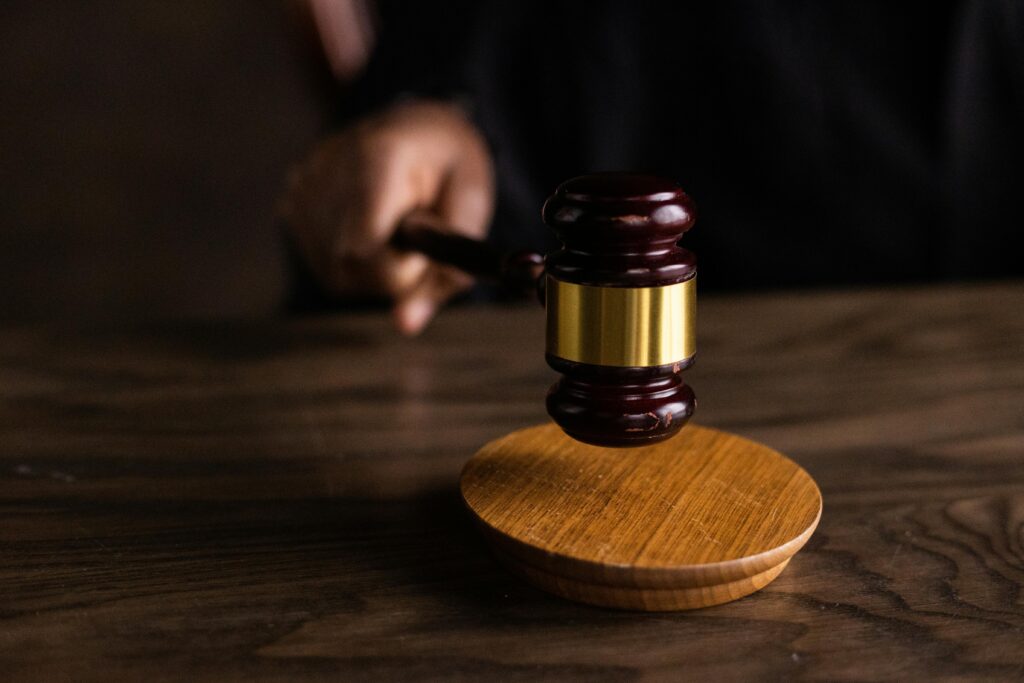Real Estate law may be a multifaceted field that administers different viewpoints of property proprietorship, exchanges, and debate. Whether you’re a property holder, a proprietor, an inhabitant, or a Real Estate speculator, understanding the lawful standards that support Real Estate exchanges and connections is pivotal for ensuring your interests and avoiding potential lawful pitfalls. In this comprehensive direct, we are going investigate the key components of Real Estate law, including property rights, contracts, landlord-tenant law, and Real Estate cases.

Property Rights
At the heart of Real Estate law lies the concept of property rights. Property rights envelop the lawful rights and interface that people or substances have in genuine property, which incorporates arrive, buildings, and other installations joined to the arrival. These rights are regularly portrayed in deeds, titles, and other lawful archives that establish ownership and utilization rights.
One of the elemental standards of property rights is proper to select ownership, which awards property proprietors the specialist to control who enters and employments their property. Also, property proprietors have the proper to exchange, rent, or contract their property, subject to certain lawful limitations and directions.
Real Estate law moreover recognizes various forms of property proprietorship, counting charge basic, leasehold, and condominium proprietorship. Charge straightforward proprietorship is the most comprehensive shape of possession, giving the proprietor full control and rights over the property. Leasehold proprietorship, on the other hand, includes the correct to have and utilize the property for an indicated period, typically through a rent understanding. Condominium possession combines the personal proprietorship of a unit with the shared proprietorship of common regions and offices inside a condominium complex.
Contracts in Real Estate
Contracts play a central part in Real Estate exchanges, serving as the legitimate system through which parties arrange and formalize their understandings. Whether buying, offering, renting, or leasing genuine property, parties included in genuine domain exchanges must enter into legitimately authoritative contracts that lay out the terms and conditions of the bargain.
Common sorts of contracts in Real Estate incorporate buy agreements, lease understandings, and property administration contracts. Buy understandings, also known as deals contracts or buy and deal assertions, detail the terms of a real bequest buy, counting the buy cost, possibilities, and closing date. Rent assertions administer the terms of a rental course of action between proprietors and inhabitants, indicating the lease, lease duration, and other rights and obligations of each party. Property administration contracts build up the terms of engagement between property proprietors and property administration companies, laying out the scope of administrations, expenses, and duties of the property director.

Landlord-Tenant Law
Landlord-tenant law oversees the rights and commitments of proprietors and occupants in rental relationships. These laws shift by locale but by and large address issues such as lease installments, security stores, rent understandings, removal methods, and tenability guidelines.
One of the essential obligations of proprietors is to supply livable living conditions for their inhabitants. This incorporates guaranteeing that the rental property meets well-being and security measures, such as giving satisfactory warming, plumbing, and ventilation. Proprietors are moreover dependable for keeping the property in great repair and instantly addressing any support issues that will arise amid the occupancy.
Tenants, in turn, must pay the lease on time, follow the terms of the rent assertion, and keep up the property in a sensible way. Moreover, inhabitants have the correct to security and tranquil satisfaction of the rental property, free from impedances or badgering by the proprietor.
Real Estate Case
Despite cautious arranging and transaction, debate can some of the time emerge in Real Estate exchanges and relationships. When debate cannot be settled through arrangement or elective debate determination strategies, parties may resort to Real Estate cases to look for determination through the court framework.
The real Estate case envelops a wide run of lawful issues, including breach of contract, property debate, landlord-tenant debate, boundary debate, and title absconds. Common sorts of genuine bequest case procedures incorporate claims for particular execution, breach of contract, removal procedures, calm title activities, and partition actions.
In Real Estate cases, parties may look for different shapes of alleviation, counting money-related harms, orders, revelatory judgments, and particular execution orders. The result of a genuine domain case frequently depends on the particular actualities of the case, as well as the pertinent laws and lawful standards overseeing the debate.

Real EstateLaw: A Comprehensive Diagram
Real Estate law may be an energetic and perplexing region of legitimate hone that administers the rights, duties, and exchanges related to genuine property. From private homes to commercial advancements, Real Estate law directs a wide range of exercises, including property proprietorship, renting, financing, and advancement. In this comprehensive diagram, we dig more profound into the basic viewpoints of Real Estate law, shedding light on its complexities and centrality within the present-day world.
Property Proprietorship and Title
Property possession lies at the center of Real Estate law, characterizing the lawful rights and interface people or substances hold in genuine property. The concept of proprietorship is ordinarily formalized through deeds, which serve as lawful disobedient exchanging possession from one party to another. Deeds contain basic data approximately the property, such as its lawful portrayal, the names of the buyer and dealer, and any encumbrances or limitations on the property’s utilization.
The title alludes to the lawful right to proprietorship and ownership of property. A clear and attractive title is basic for encouraging Real Estate exchanges because it guarantees that the buyer gets an undisputed proprietorship of the property. The title looks and title protections play significant parts in verifying the ownership history of a property and ensuring buyers and loan specialists against potential title surrenders or claims.
Real Estate Contracts
Real Estate exchanges are administered by contracts that diagram the terms and conditions of the bargain and tie the parties to their particular commitments. Buy assertions, rent understandings, and financing assertions are common sorts of contracts utilized in Real Estate transactions.
Buy understandings, moreover known as deals contracts, detail the terms of a property deal, counting the buy cost, possibilities, and closing date. Rent assertions administer the terms of a rental course of action between proprietors and occupants, indicating the lease, rent length, and other rights and commitments of the parties. Financing assertions, such as contracts and promissory notes, set up the terms of the credit utilized to buy or renegotiate genuine property.

Arrive Utilize and Zoning
Arrive utilize and zoning controls administer how to arrive and property can be utilized and created inside a specific purview. Zoning statutes assign distinctive zones or locales for private, commercial, mechanical, and other types of arrive utilize, managing reasonable employment, building difficulties, stature limits, and other improvement measures.
Landowners and developers must comply with zoning directions when arranging and developing unused advancements or making changes to existing properties. Getting zoning endorsements, changes, or extraordinary licenses may be essential to attempt certain sorts of improvement ventures or utilize properties in non-conforming ways.
Landlord-Tenant Law
Landlord-tenant law administers the rights and obligations of proprietors and occupants in rental connections. These laws change by jurisdiction but for the most part address issues such as lease installments, security stores, rent terms, ousting methods, and tenability measures.
Proprietors have a legitimate commitment to supply tenable living conditions for their inhabitants, counting keeping the property in a secure and sterile condition and tending to upkeep issues expeditiously. Inhabitants, in turn, are mindful of paying the lease on time, following the terms of the rent agreement, and dodging exercises that will harm the property or exasperate other occupants.
Real Estate Case
Despite endeavors to resolve the debate agreeably, Real Estate exchanges and connections can some of the time lead to a case. Real estate cases include a wide extent of lawful debate, including breach of contract, boundary debate, landlord-tenant debate, development abandons, and title issues.
In Real Estate litigation, parties may look for different types of alleviation, such as financial harms, particular execution orders, directives, or revelatory judgments. The result of the case regularly depends on the particular truths of the case, as well as the appropriate laws and legitimate standards overseeing the debate.

Conclusion
Real Estate law could be a multifaceted and energetic field that converges with different perspectives of property possession, exchanges, and advancement. Whether buying, offering, renting, or creating a genuine property, people and businesses must explore a complex lawful scene represented by statutes, directions, and common law standards.
By understanding the elemental concepts of property possession, contracts, arriving utilization controls, landlord-tenant law, and genuine bequest cases, partners can viably oversee dangers, secure their interests, and accomplish their destinations in Real Estate exchanges and connections. Counseling with experienced genuine domain lawyers and experts can give profitable direction bolster in exploring legitimate complexities and guaranteeing compliance with appropriate laws and controls.
